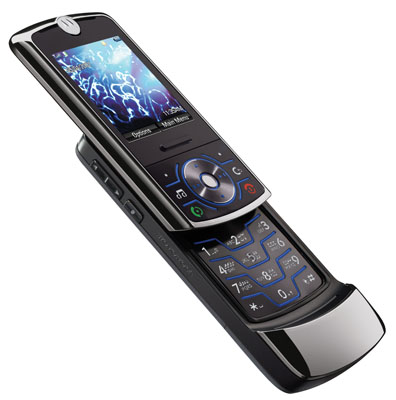In my time at Prepaid Reviews, there are no two companies that have fascinated me more than MetroPCS and Leap Wireless, parent company of the Cricket Communications and Jump Mobile cellular brands. When I started, they were the only companies (Cricket, not Jump) which offered flat-rate, unlimited calling plans — at a reasonable price, to boot. Lately, Leap has been the one making headlines, and in a good way. Six months ago, I thought Leap was foolish for rejecting MetroPCS’s merger bid. Now, though, I can see why they declined.
Ripe for expansion
One thing I’ve followed closely is how Leap has been expanding and announcing new markets they plan to enter. Over the past year, they’ve entered markets in North Carolina, South Carolina, Georgia, Oklahoma City, St. Louis, and Philadelphia, among others. The networks might not be fully operational at the time of this writing, but those markets have at least been announced by the company. And it doesn’t plan on slowing down. On tap for 2008 are Chicago and Las Vegas. To enhance their expansion, Leap employs a strategy it calls a market cluster strategy. “It amounts to creating larger calling areas by pairing together, or grouping together, markets that are close, if not contiguous,” says Greg Lund, senior manager of corporate communications at Leap. An example of this is in Colorado, where the Denver, Colorado Springs, and Pueblo markets are grouped together into one calling area. “We’ve also done that in South Texas,” says Lund. “With Temple, Killeen, Austin, on down to Houston. And we’ll continue the South Texas markets — we’ll have some more launches in those areas, too — and they’ll essentially be one calling area.” Lund also mentions market clusters covering Philadelphia, Baltimore, Washington D.C., and northern Virginia. “It usually takes us twelve to eighteen months to build our networks in a market,” says Lund. “So work on all — not all our Auction 66 markets, but the ones that we anticipate launching within the next twelve to eighteen months are underway.” Now there’s something that might be unfamiliar: Auction 66. Here Lund refers to the advanced wireless services auction.Leap and the AWS spectrum
 In 2006, the FCC held Auction 66. This covered the advanced wireless services spectrum, which many companies plan to use for third generation networks. T-Mobile was the big story in this auction, spending $4.18 billion on 120 licenses. Leap, however, grabbed 100 licenses of their own, though the population contained in those markets wasn’t quite to the level of T-Mobile. Still, Leap spent less than a quarter of what T-Mobile did, and reached a greater population per dollar spent.
Earlier this month, Cricket announced its first AWS handset. This is in anticipation of the impending AWS network launch in Oklahoma City. Though no specific date has announced, we can expect to find out more “soon,” according to Lund.
When asked what markets would be next to launch with the AWS spectrum, Lund said that he could not comment on specifics, but that they “typically announce the actual markets about thirty days prior to their launching.” Though he did add that sometimes they do them more quickly.
“We’ve started to work on building networks in Chicago and St. Louis and Las Vegas, among other cities,” says Lund. “But we expect to have all our Auction 66 markets launched by the start of 2010.”
In 2006, the FCC held Auction 66. This covered the advanced wireless services spectrum, which many companies plan to use for third generation networks. T-Mobile was the big story in this auction, spending $4.18 billion on 120 licenses. Leap, however, grabbed 100 licenses of their own, though the population contained in those markets wasn’t quite to the level of T-Mobile. Still, Leap spent less than a quarter of what T-Mobile did, and reached a greater population per dollar spent.
Earlier this month, Cricket announced its first AWS handset. This is in anticipation of the impending AWS network launch in Oklahoma City. Though no specific date has announced, we can expect to find out more “soon,” according to Lund.
When asked what markets would be next to launch with the AWS spectrum, Lund said that he could not comment on specifics, but that they “typically announce the actual markets about thirty days prior to their launching.” Though he did add that sometimes they do them more quickly.
“We’ve started to work on building networks in Chicago and St. Louis and Las Vegas, among other cities,” says Lund. “But we expect to have all our Auction 66 markets launched by the start of 2010.”
Expanding the scope of service
While voice revenues have flattened out, or even declined in the wireless industry, mobile data is on the rise. The AWS spectrum helped to create opportunities for companies without reliable high-speed data networks to enter the fray. Leap was one of those companies, and we’re starting to see their move towards data with their recently-introduced mobile broadband card. While many wireless carriers have these, it’s tough to match Leap in price — $35 per month — and breadth — truly unlimited data. “We have dipped our toes in,” says Lund, referring to the wireless Internet market. “And we will continue to roll that out in conjunction with our AWS markets.” While laptop cards are nice, many people are getting excited about new smartphones that are hitting the market. A glance at Cricket’s handset line reveals that they’re not into that market yet. But will they? “We are looking, always, at new products in the handset and device category, and that would be among those that we’d be looking at,” says Lund when asked about possible smartphones from Cricket. “But yes, our data offering is being beefed up, and we see that as a significant part of the business going forward.” Of course, it’s not just on the high-end data phones that Leap seeks to expand. “Our customers expect us to have a pretty diverse offering,” says Lund about the company’s handsets. “We’re trying to stay attuned to what our customer want,” says Lund. “On one hand you have the higher end phones, the RAZRs we have carried. And on the other hand, you have this phone like the Cricket EZ, which has become popular.”A growth-oriented mindset
 “We expect to double the size of our company over the next two or three years,” says Lund. “And that is in large part due to the AWS markets.” Leap crossed the three million subscriber mark in early 2008, and to see the company with six million come 2010 would be an enormous accomplishment.
Of course, that growth could be compromised as most of the major carriers are offering unlimited plans. Still, Leap knows that it can continue to compete, even though it might not have the level of resources of the AT&Ts and Verizons of the cell phone world.
“Right now, the price points are dramatically different,” says Lund, referring to Leap’s high-end price of $60, vs. the lowest plans from the other companies, which is $99. “We will make sure to make the distinction between what is unlimited and what sounds like unlimited.”
It was only fitting that the day I talked to Lund was Leap’s ninth birthday. “We launched it as unlimited, and we’ve been truly unlimited for nine years.” From zero to three million in nine years is certainly an accomplishment. What’s better, though, is that Leap shows no signs of abandoning it in the future.
Say what you will about the national coverage and network reliability of the major carriers and their unlimited plans. It’s clear that Leap isn’t letting any of that hold them down. They’re continuing to expand the scope and level of their service, so that they can bring unlimited service — without the bounds of stifling contracts — to the masses.]]>
“We expect to double the size of our company over the next two or three years,” says Lund. “And that is in large part due to the AWS markets.” Leap crossed the three million subscriber mark in early 2008, and to see the company with six million come 2010 would be an enormous accomplishment.
Of course, that growth could be compromised as most of the major carriers are offering unlimited plans. Still, Leap knows that it can continue to compete, even though it might not have the level of resources of the AT&Ts and Verizons of the cell phone world.
“Right now, the price points are dramatically different,” says Lund, referring to Leap’s high-end price of $60, vs. the lowest plans from the other companies, which is $99. “We will make sure to make the distinction between what is unlimited and what sounds like unlimited.”
It was only fitting that the day I talked to Lund was Leap’s ninth birthday. “We launched it as unlimited, and we’ve been truly unlimited for nine years.” From zero to three million in nine years is certainly an accomplishment. What’s better, though, is that Leap shows no signs of abandoning it in the future.
Say what you will about the national coverage and network reliability of the major carriers and their unlimited plans. It’s clear that Leap isn’t letting any of that hold them down. They’re continuing to expand the scope and level of their service, so that they can bring unlimited service — without the bounds of stifling contracts — to the masses.]]>
Posted in Cricket

Cricket got’s most of central texas,once they launch in Corpus Christi,Laredo,all of the Rio Grande Valley,Pocket will be doomed and all the other wireless providers,why?,no credit cheack,no contracts,no deposit,and all unlimited minutes with different plans to fit your budget.
When will cicket come to Birmingham Alabama
ok so im getting my first phone soon and i think my mom is gonna order from here!
but i dont think we are cuz u guys are a little bit expensive!
hey i was just looking for a new phone…and i was just wondering if this phone has a camera…and how much this phone would cost me… because i did buy a phone from Cash and Lone but it doesnt work right…and i need a new one…if you could e-mail me back i would appreciate it!! thanks!
yeah i like cricket and i have there service they rock wooooooooh! uh huh yeah thats what i talkin about shake that groove thing